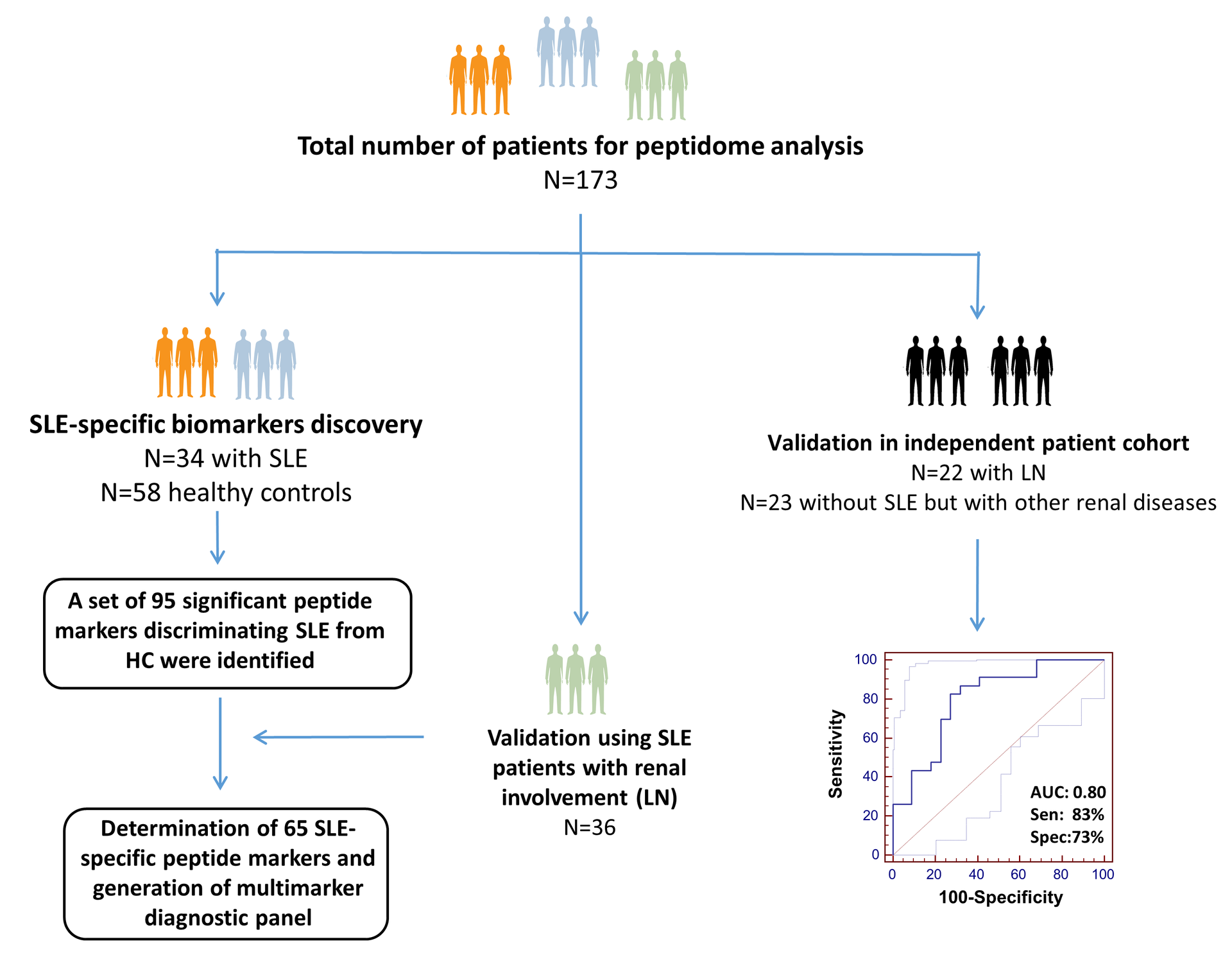Systematic lupus erythematosus
Systematic lupus erythematosus (SLE) is a complex inflammatory disease involving multiple organs like the skin, the musculoskeletal system, the kidneys and the central nervous system (CNS). The most common manifestation of advanced SLE is lupus nephritis (LN). The incidence of LN is approximately 40% in SLE patients. SLE is characterized by antibody accumulation, continuous increase of the protein levels from complement system and macrophage activation. These molecular processes lead to aggressive disease progression and are often insensitive to treatment. Standard procedure for diagnosis is based on anti-double-stranded (ds) DNA antibodies and complement 3 (C3) and 4 (C4) measurements showing moderate clinical performance with sensitivity and specificity values in a range of 53–100% and 50–71%, respectively. Therefore, new non-invasive methods are in high demand for improved management of SLE patients, aiming to provide important information about early disease stage.
A panel of urinary peptide markers that reflected SLE without LN, additionally improving SLE diagnosis of these patients was constructed by conducting discovery and validation study on 34 SLE patients and 58 healthy individuals. A peptide marker panel composed of 95 peptide markers was established and further refined by using the peptide profiles of additional 36 LN patients to eliminate peptides cross-reactive with LN. In this way, a diagnostic classifier with 65 SLE-specific peptide markers was established and further validated in an independent test set of 23 LN patients and 22 patients without SLE, but with other renal diseases. The classifier achieved an AUC of 0.80, corresponding to a sensitivity and specificity of 83% and 73% at the best cut-off, respectively. The study workflow is shown in Figure 1.

Figure 1: SLE study design.
REFERENCES:
- Pejchinovski M, Siwy J, Mullen W, Mischak H, Petri MA, Burkly LC, Wei R. Urinary peptidomic biomarkers for diagnosis of patients with systematic lupus erythematosus. Lupus 2017; 27 (1): 6-16
